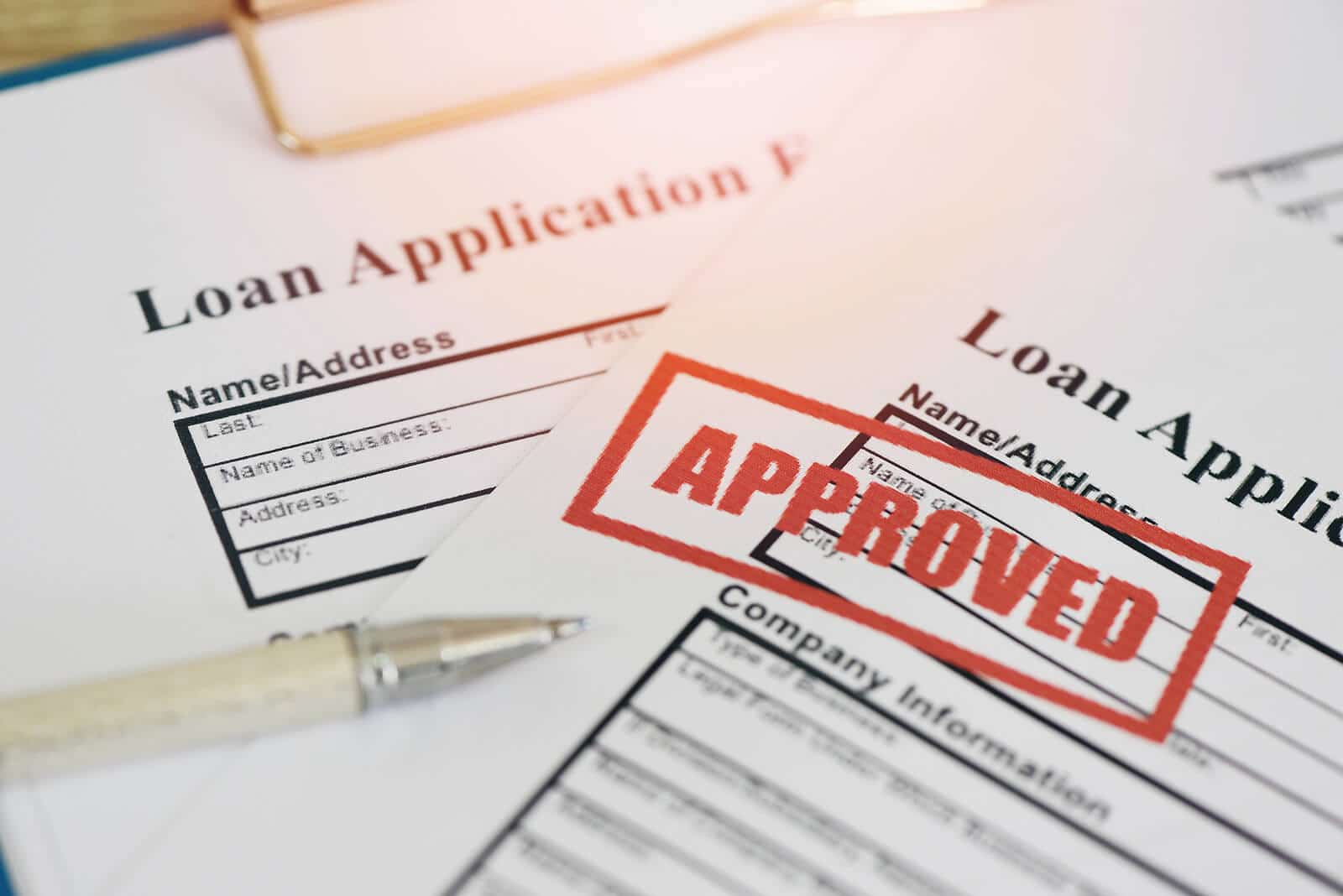Approval for mortgage loan – Navigating the intricacies of mortgage loan approval can be a daunting task. However, with a comprehensive understanding of the process and the factors that influence it, homebuyers can significantly enhance their chances of securing the financing they need to purchase their dream home.
This guide will delve into the various aspects of mortgage loan approval, providing readers with a clear roadmap to success. From assessing loan qualification factors to understanding different loan types and terms, we will explore every step of the process, empowering homebuyers with the knowledge and confidence to navigate this crucial aspect of homeownership.
Loan Qualification Factors
When evaluating mortgage loan applications, lenders consider several key factors to assess the borrower's creditworthiness and ability to repay the loan.
These factors include:
Income
Lenders evaluate the borrower's income to ensure they have a stable and sufficient income to cover the monthly mortgage payments. They typically consider both the borrower's gross and net income, including wages, salaries, self-employment income, and investment income.
Debt-to-Income Ratio, Approval for mortgage loan
The debt-to-income ratio (DTI) is a measure of how much of the borrower's monthly income is already committed to debt payments. Lenders typically want to see a DTI below 36%, which means that no more than 36% of the borrower's monthly income should go towards debt payments.
Credit History
The borrower's credit history provides insight into their past borrowing behavior and ability to manage debt. Lenders review the borrower's credit report to assess factors such as the number and type of credit accounts, payment history, and any negative items, such as late payments or collections.
Approval Process
Obtaining mortgage loan approval involves a series of steps designed to assess the borrower's creditworthiness and financial stability. The process typically begins with pre-approval and culminates in final loan approval and closing.
The mortgage loan approval process consists of several key stages, each with specific requirements and timelines. These stages include:
Pre-Approval
Pre-approval is an initial assessment of a borrower's financial situation to determine their eligibility for a mortgage loan. It involves submitting basic financial information, such as income, assets, and debts, to a lender. Pre-approval provides an estimate of the loan amount and interest rate the borrower may qualify for, allowing them to make informed decisions about home purchases.
Loan Application
Once a borrower has identified a property, they must submit a formal loan application to the lender. The application includes detailed financial information, including income, assets, debts, and employment history. The lender will review the application and request additional documentation as needed.
Document Submission
After the loan application is submitted, the borrower will need to provide supporting documentation to verify their financial information. This may include pay stubs, bank statements, tax returns, and other relevant documents.
Underwriting
Underwriting is the process by which the lender evaluates the borrower's financial situation and determines whether to approve the loan. The underwriter will review the borrower's credit history, income, assets, and debts to assess their ability to repay the loan.
The underwriter may also order an appraisal of the property to determine its value.
Final Approval
If the loan is approved by the underwriter, the lender will issue a final loan approval. The borrower will then be required to sign the loan documents and pay closing costs. Closing costs typically include fees for loan origination, title insurance, and other expenses associated with the loan.
Loan Types and Terms
Understanding the various loan types and terms is crucial when seeking mortgage approval. Different loan options cater to diverse financial situations and goals, so borrowers should carefully consider their choices.
The primary loan types include fixed-rate mortgages, adjustable-rate mortgages (ARMs), and government-backed loans.
Fixed-Rate Mortgages
- Interest rates remain constant throughout the loan period, providing stability in monthly payments.
- Ideal for borrowers who prefer predictable payments and long-term stability.
Adjustable-Rate Mortgages (ARMs)
- Interest rates fluctuate based on market conditions, potentially leading to changes in monthly payments.
- May offer lower initial interest rates compared to fixed-rate loans, but carry the risk of higher payments in the future.
Government-Backed Loans
- Backed by government agencies like FHA, VA, and USDA.
- Typically offer lower down payment requirements and more flexible credit guidelines, making them accessible to first-time homebuyers and those with less-than-perfect credit.
Loan terms also play a significant role in mortgage approval. These include:
- Interest Rates:The cost of borrowing money, expressed as a percentage of the loan amount.
- Loan Periods:The duration of the loan, typically ranging from 15 to 30 years.
- Down Payment Requirements:The percentage of the home's purchase price that the borrower must pay upfront.
Mortgage Insurance
Mortgage insurance protects the lender in case the borrower defaults on their loan. It is typically required when the borrower makes a down payment of less than 20% of the home's purchase price.
There are two main types of mortgage insurance: private mortgage insurance (PMI) and Federal Housing Administration (FHA) loans.
Private Mortgage Insurance (PMI)
PMI is a type of mortgage insurance that is typically required by lenders when the borrower makes a down payment of less than 20% of the home's purchase price. PMI premiums are typically paid monthly and are added to the borrower's mortgage payment.
A loan is a financial transaction in which a lender provides a borrower with money, which the borrower must repay with interest over time. While paying off a home loan can be a significant financial burden, it can also be a rewarding experience that allows you to build equity in your home.
However, it's important to be aware of the risks associated with PPL loan fraud and to only engage in online forex trades with reputable brokers.
Federal Housing Administration (FHA) Loans
FHA loans are a type of mortgage insurance that is backed by the government. FHA loans are available to borrowers who have a credit score of at least 580 and who can make a down payment of at least 3.5% of the home's purchase price.
FHA loans typically have lower interest rates than conventional loans, but they also have higher monthly mortgage insurance premiums.
Home Appraisal
A home appraisal is an assessment of a property's value conducted by a licensed appraiser as part of the mortgage loan approval process. The appraisal helps the lender determine the property's worth and whether it meets the loan criteria.
Appraisers consider various factors during their assessment, including:
- Property condition
- Comparable sales data
- Market conditions
- Replacement cost
- Income-generating potential (for investment properties)
The appraisal report provides the lender with an unbiased estimate of the property's value, which affects the loan eligibility and the amount of money the lender is willing to lend.
Factors Affecting Loan Eligibility
- Loan-to-Value (LTV) Ratio:The LTV ratio is the percentage of the loan amount compared to the appraised value of the property. A higher LTV ratio indicates a higher risk for the lender and may require additional measures like private mortgage insurance.
- Debt-to-Income (DTI) Ratio:The DTI ratio compares the borrower's monthly debt payments to their monthly income. A higher DTI ratio indicates a higher risk of default and may affect loan eligibility.
Loan Denial Reasons: Approval For Mortgage Loan
Mortgage loan denials can be a frustrating experience, but understanding the common reasons for rejection can help you address potential issues and improve your chances of approval.
One of the most common reasons for loan denial is a low credit score. Lenders use your credit score to assess your creditworthiness and determine the risk of lending you money. A low credit score can indicate a history of missed or late payments, high debt levels, or other financial problems.
Improving Your Credit Score
- Pay your bills on time, every time.
- Keep your credit utilization low (below 30%).
- Dispute any errors on your credit report.
- Avoid opening new credit accounts unless necessary.
- Consider credit counseling if you have difficulty managing your debt.
Another common reason for loan denial is insufficient income. Lenders need to ensure that you have enough income to make your mortgage payments on time. They will typically look at your debt-to-income ratio (DTI), which is the percentage of your monthly income that goes towards debt payments.
Increasing Your Income
- Ask for a raise or promotion at work.
- Get a part-time job or start a side hustle.
- Rent out a portion of your home.
- Sell unnecessary assets.
- Consider refinancing your existing debt to lower your monthly payments.
Finally, lenders may also deny a loan if the property you are trying to purchase does not meet their underwriting criteria. This could be due to the property's condition, location, or other factors.
Addressing Property Issues
- Get a home inspection to identify any potential problems with the property.
- Be prepared to make repairs or renovations if necessary.
- Consider purchasing a different property that meets the lender's requirements.
By understanding the common reasons for loan denial and taking steps to address potential issues, you can increase your chances of getting approved for a mortgage loan.
Loan Comparison and Shopping
Comparing loan options from different lenders is crucial for securing the best mortgage loan. By exploring various offerings, you can identify the most suitable terms, interest rates, and fees that align with your financial situation.
Factors to Consider When Shopping for a Mortgage Loan
When comparing mortgage loans, consider the following factors:
-
-*Loan Type
Choose between fixed-rate or adjustable-rate mortgages based on your financial stability and interest rate expectations.
-
-*Interest Rate
Compare annual percentage rates (APRs) and interest rates from different lenders to find the lowest cost of borrowing.
-
-*Loan Term
Determine the loan term that best suits your repayment capabilities and financial goals.
-
-*Down Payment
The size of your down payment will impact the loan amount, monthly payments, and private mortgage insurance (PMI) costs.
-
-*Closing Costs
Factor in the various fees associated with closing the loan, such as origination fees, appraisal fees, and title insurance.
Closing Summary
By following the insights Artikeld in this guide, homebuyers can increase their chances of obtaining mortgage loan approval and realizing their dream of homeownership. With a solid understanding of the process, a proactive approach, and the support of experienced professionals, securing financing for your future home can be a seamless and rewarding experience.
FAQ Compilation
What are the key factors that lenders consider when evaluating mortgage loan applications?
Lenders typically assess factors such as income, debt-to-income ratio, credit history, and property value to determine a borrower's eligibility for a mortgage loan.
What is the step-by-step process of mortgage loan approval?
The mortgage loan approval process generally involves pre-approval, loan application, document submission, underwriting, and final approval.
What are the different types of mortgage loans available?
Common types of mortgage loans include fixed-rate loans, adjustable-rate loans, government-backed loans, and jumbo loans.
What is the purpose of mortgage insurance, and how does it affect loan approval?
Mortgage insurance protects the lender in case of a borrower's default. It can make it easier to qualify for a mortgage loan, especially for borrowers with a lower down payment.
Why might a mortgage loan application be denied?
Common reasons for loan denial include insufficient income, high debt-to-income ratio, poor credit history, and property issues.


